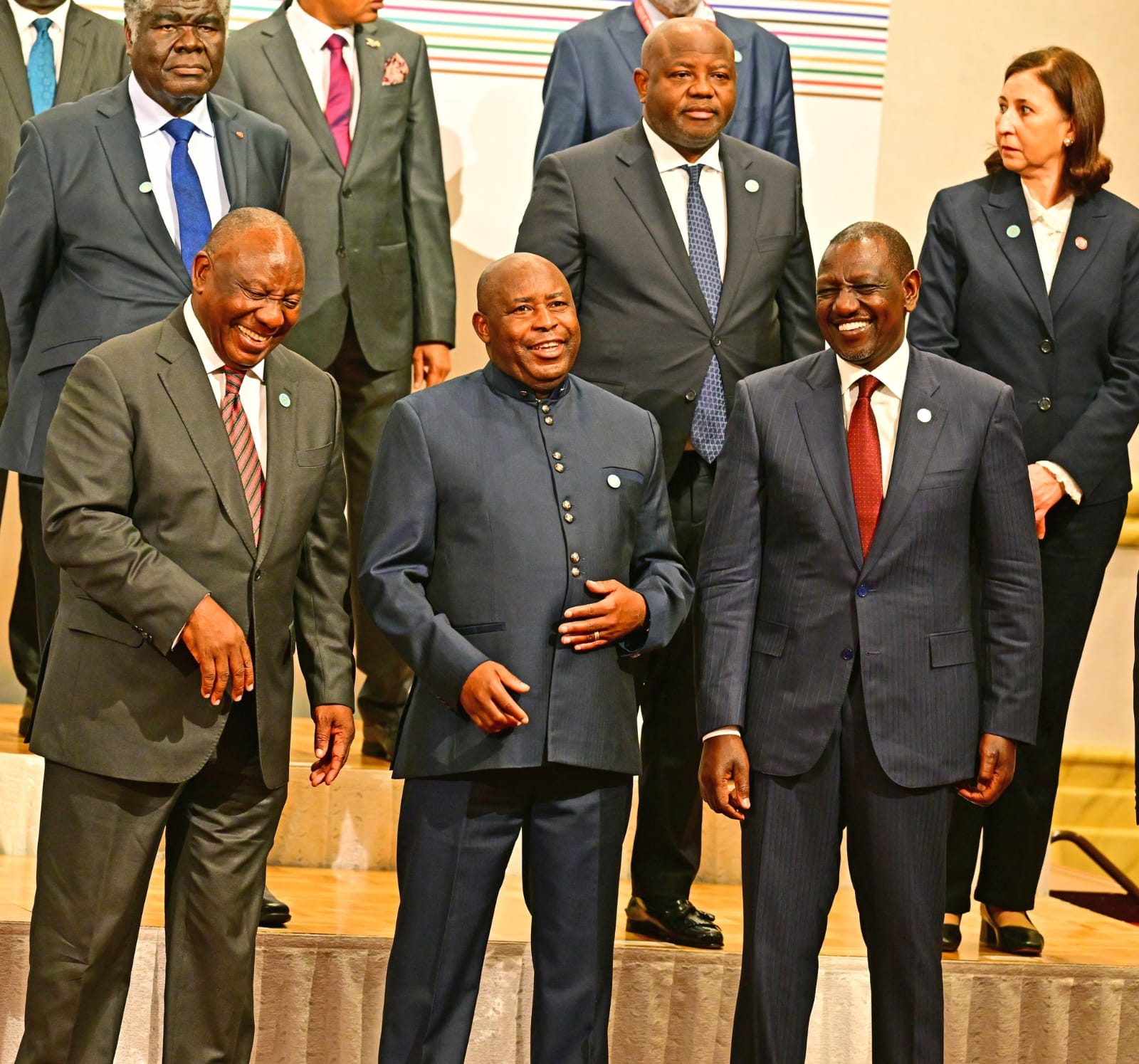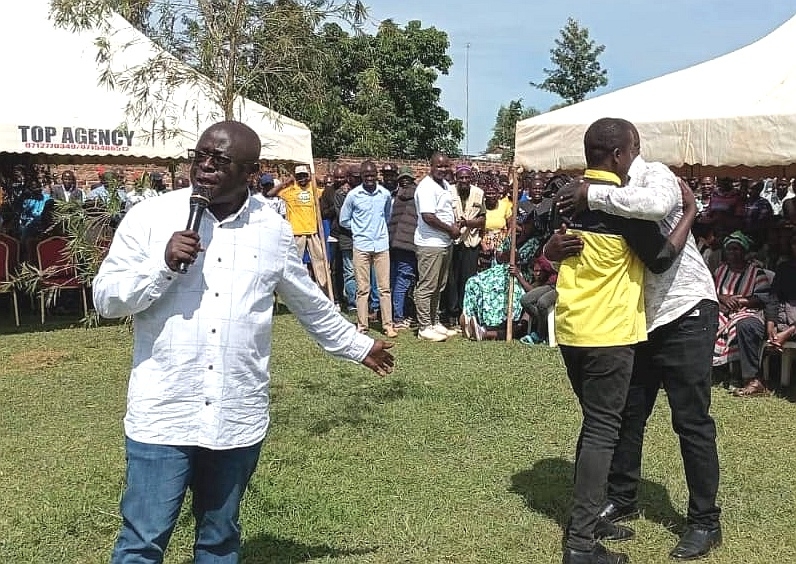
 President William Ruto (right) with other African leaders in Yokohama, Japan on August 20, 2025/PCS
President William Ruto (right) with other African leaders in Yokohama, Japan on August 20, 2025/PCSKenya has secured a 25 billion yen (about Sh22 billion) Samurai financing facility from Japan to accelerate local manufacturing of electric vehicles and reduce electricity costs for households and businesses.
The agreement was announced Thursday during the Tokyo International Conference on African Development (TICAD 9) in Yokohama, Japan.
The ceremony was witnessed by President William Ruto and Japanese Prime Minister Shigeru Ishiba.
Prime Cabinet Secretary Musalia Mudavadi signed the Statement of Intent with Nippon Export and Investment Insurance (NEXI) Chairman and CEO Atsuo Kuroda.
“This unique Samurai facility will stimulate the entire automotive value chain, foster linkages with other sectors and promote innovation, research and development,” said Mudavadi.
“It will further improve access to affordable, reliable power by reducing losses in electricity transmission and distribution.”
The Samurai facility, which carries a seven-year maturity period, underscores Kenya’s effort to diversify its funding sources away from shrinking traditional credit channels due to shifting global geopolitical and economic priorities.
According to Mudavadi, the envisioned funding will help Kenya scale up its automotive industry in line with the National Automotive Policy by promoting local manufacturing and phasing out used vehicle imports.
It will also boost energy efficiency by replacing ageing transformers, lowering electricity costs for businesses and households.
Once the term sheet is concluded, the National Treasury and NEXI will proceed to sign a formal agreement, enabling Kenya to access credit.
Out of the total facility, 15 billion yen (Sh13.1 billion) will go to the Ministry of Investment, Trade and Industry to support local vehicle assemblers, spare parts manufacturers, and technical training in the green automotive industry.
The financing is set to bolster Kenya’s National Automotive Policy, which seeks to gradually phase out the importation of used cars and parts in favour of locally manufactured, energy-efficient vehicles.
Another 5.5 billion yen (Sh4.8 billion) will be directed to the Ministry of Energy to address inefficiencies in the power network.
The funds will finance the purchase and installation of high-efficiency transformers to replace ageing ones across the national grid.
The intervention is expected to cut the 23 percent transmission and distribution losses currently eating into the country’s power supply, a move that will lower electricity bills for households and industries.
The balance of 4.5 billion yen (Sh3.9 billion) will go to general budget support, helping improve fiscal stability and free up resources for national development programmes.
Mudavadi hailed Japan’s commitment, saying the partnership is a strong endorsement of Kenya’s Bottom-Up Economic Transformation Agenda.
“Japan’s support will help us move up priority value chains, create jobs, and advance shared prosperity for all Kenyans,” he said.

















